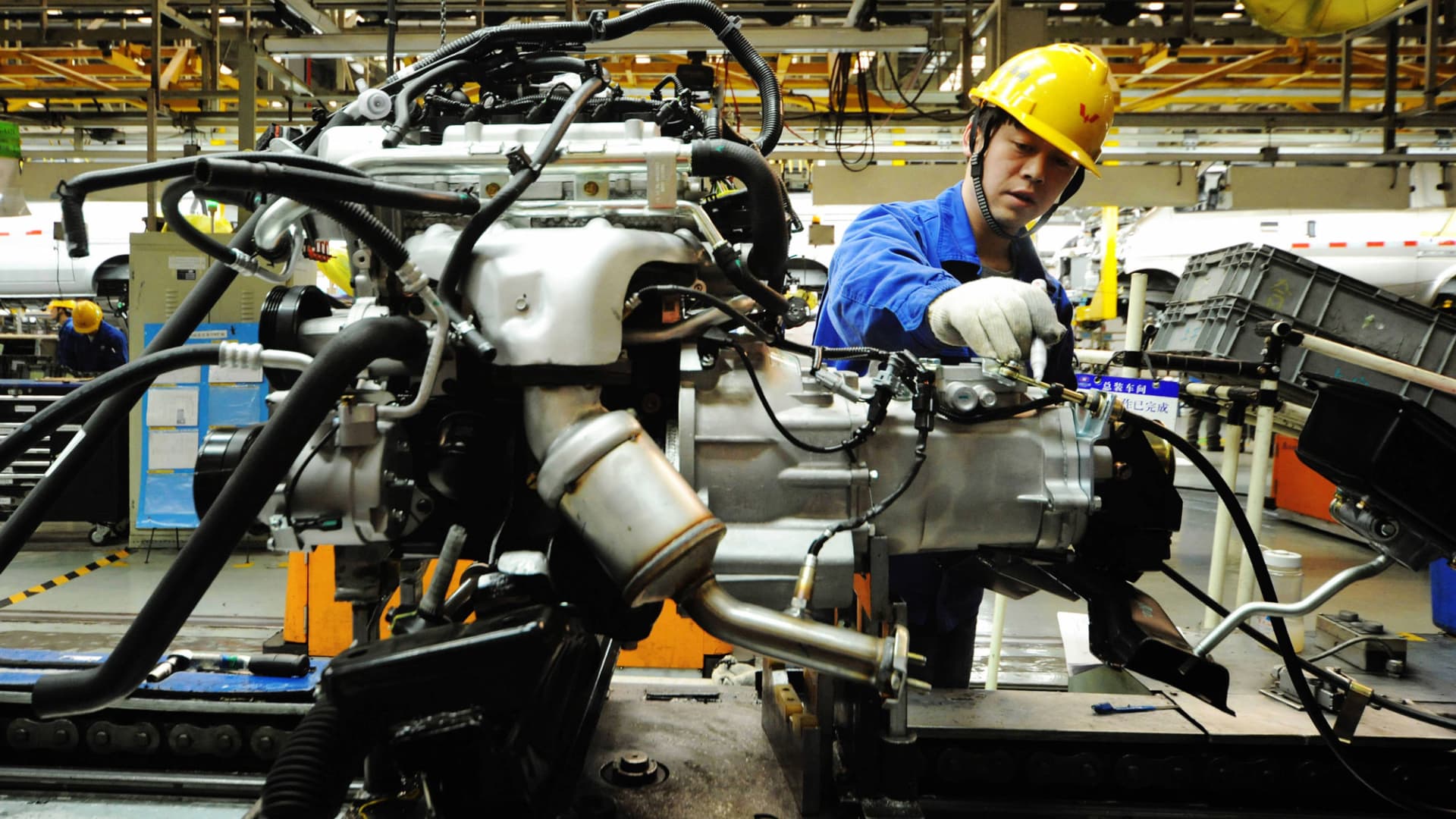
After rare protests erupted in China at the weekend over stringent Covid-19 restrictions, investor focus has once again shifted to the country. Many global companies are heavily exposed to China, including some of the world’s biggest automakers, which generate between 20% and 40% of their worldwide sales in the country, according to Goldman Sachs. In a note to clients on Nov. 22 — before the latest protests — the investment bank mapped out the global auto industry’s exposure to Chinese consumers, noting that “China is a significant profit driver for the major global carmakers and their suppliers.” Here are some of the companies covered in Goldman’s report: Tesla Tesla has significant exposure to China; Goldman Sachs said the country accounted for 27% of the group’s sales in 2021 and 52% of its total production volume. Tesla also owns and operates 224 showrooms and 99 service centers across the country, the bank noted. Tesla ramped up its annual production capacity at its Shanghai factory by 400% to 750,000 cars in 2022 to meet domestic demand. In addition, the company also exports a significant number of vehicles made at its Chinese Gigafactory to regional markets. Goldman Sachs has a $305 price target on Tesla, giving it potential upside of around 66% from its current share price of around $182. Mercedes-Benz Goldman Sachs estimates that Mercedes will sell 734,000 cars this year in China. The investment bank forecasts annualized sales growth in the country of 2.7% and 3.1% for 2023 and 2024, respectively, which will account for 36-37% of worldwide sales. China made up 10%, or 3.2 billion euros ($3.34 billion), of the company’s total profits in 2021, up from just 2% a decade ago, the bank said. Goldman’s analysts are buy-rated on Mercedes-Benz, with a price target of 69 euros, giving it a potential upside of around 12% from the current share price of 61.5 euros. Volkswagen As the first global automaker to enter China in 1984, VW has seen sales in the country grow by 10% year-on-year over the past two decades, Goldman noted. However, the bank estimates that new car sales in China will stabilize at 3 million to 3.1 million cars per year, accounting for a third of the automaker’s global sales between 2022 and 2024. The investment bank said operating profit from VW’s joint venture with China’s SAIC contributed an average 6.7% to Volkswagen Group’s profit between 2019 and 2021. This is lower than in previous years due to slowing demand in recent years, Goldman said. Due to several downside risks the company faces in Europe and China, Goldman has a neutral rating on VW’s stock with a price target of 150 euros per share. It was trading around 135 euros on Monday. Meanwhile, Volkswagen’s joint-venture partner SAIC is sell-rated by Goldman Sachs, which gives it downside potential of 9%. “We rate the stock Sell partially because the Chinese EV industry’s product innovations at mass market price points are driving faster-than-expected EV adoption and hence exposes SAIC to increasing market share loss and profit declines,” the analysts said. General Motors Goldman Sachs estimates that nearly half of all cars GM sells worldwide will be in China between 2022 and 2024. The carmaker is expected to sell an average of 2.7 million vehicles a year in China over the same period. The investment bank expects China’s contribution to GM’s income to rise by 15% and 33.6% annually over the next two years. Goldman is buy-rated on GM and has a $42 price target on the stock, just higher than the current share price of $40.46. Other automakers such as Toyota , BMW , Ford , and Honda were also highlighted in Goldman’s report as having between 20%-50% of their global car volumes produced in China. — CNBC’s Michael Bloom contributed to this story.
